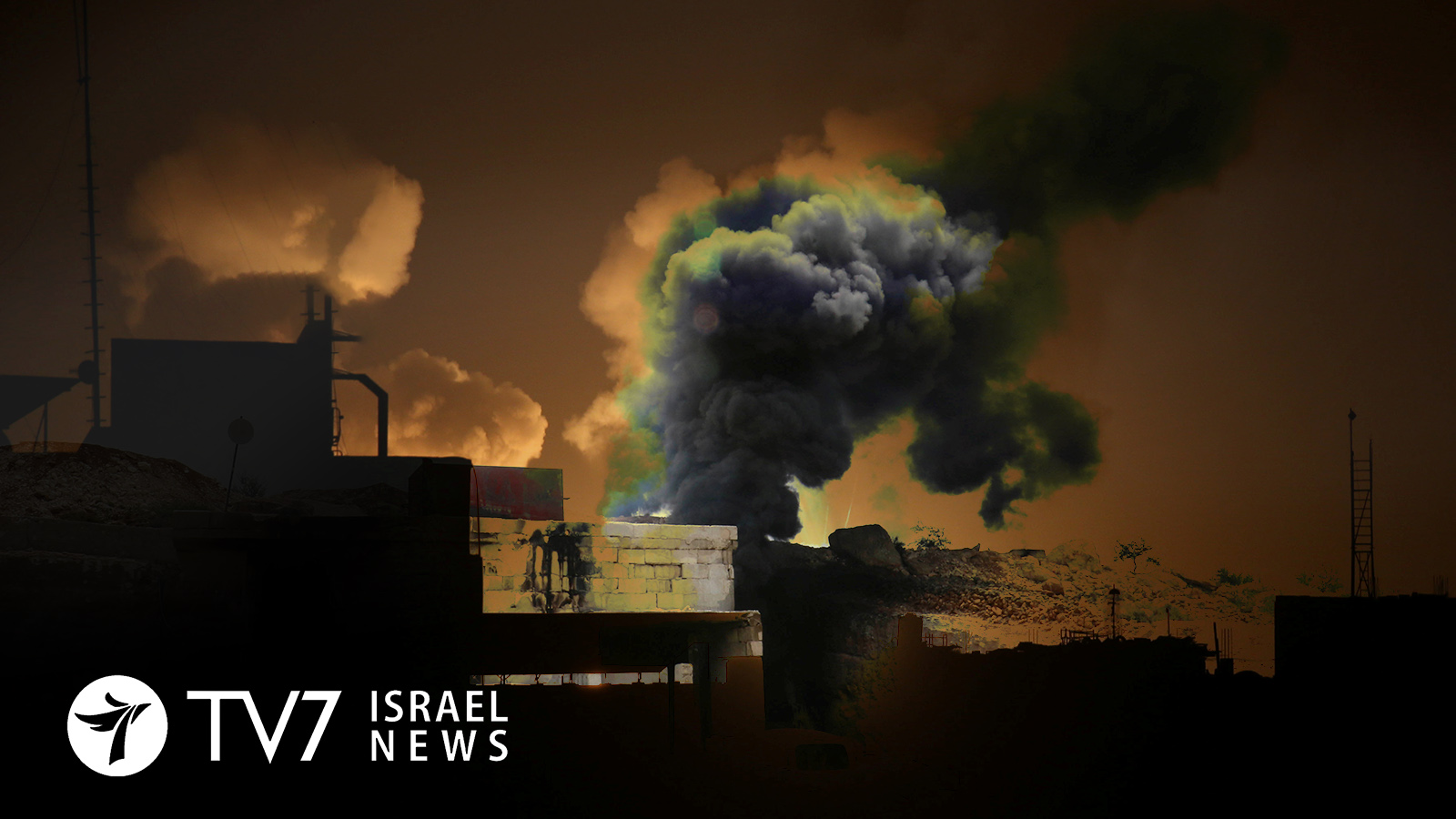The Syrian Armed Forces (SAF) accused Israel of launching another barrage of air strikes for the second time in 7 days.
According to the military statement published by the official Sana news agency, at 11:50 PM last night “Israel attacked from the air in the southern Damascus area from the direction of the Israeli Golan.” The SAF maintained that the target of the attack were operatives belonging to the Iranian-backed Hezbollah organization, on a strategic area hit in the past by the IDF from the Israeli side of the Golan Heights.
While the official Syrian statement said that only material damage was sustained, the Syrian Observatory for Human Rights (SOHR) monitoring group said that 8 foreign nationals were killed in the attack that destroyed weapons depots and other equipment belonging to pro-Iranian militias near the Jabal al-Mana area and close to the village of Ravihina.
Military defectors confirmed the strike targeted an military base in Jabal Mane Heights near the town of Kiswa, where Iran’s Islamic Revolutionary Guards Corps (IRGC) has long been entrenched in a rugged area almost 15 km (9.3 miles) south of the center of Damascus.
Strikes that occurred in July also hit towns near Kiswa, where the Lebanon-based Hezbollah terror group is deployed along with other Iranian paramilitary militias, according to a senior Syrian army defector cited by Reuters.
SAF sources claim anti-aircraft missiles are stationed in the area to defend the Syrian Golan Heights along the border with Israel.
The IDF has declined to comment on the latest aerial strikes on the territory, located just over Israel’s northern frontier where the growing Iranian presence is viewed as a strategic threat. In recent months, however, Israeli defense officials have stated that the country’s campaign against Iran in Syria would be stepped up on locations where Tehran has expanded its presence with the help of its proxies.
Western intelligence sources say Israel’s increased attacks are a part of a shadow war that was approved by the administration of United States President Donald Trump, as part of the ‘maximum pressure’ policy over the last several years that has succeeded in undermining the Islamic Republic’s extensive military power without triggering a major increase in hostilities.
In a rare statement, Israel confirmed and released documentation of aerial raids its fighter jets carried out on a wide range of military targets in Syria last Wednesday, 18 November – in what signaled a continuation of its cross-border defense policy despite Trump’s election defeat.
According to IDF Spokesman Lt. Col. Jonathan Conricus, 8 targets in areas between the Syrian side of the Golan and the Damascus periphery were targeted in the attack. They included Iranian headquarters at Damascus international Airport, a “secret military site” that served as a “hosting facility for senior Iranian delegations when they come to Syria to operate,” the 7th Division of the SAF, “storage facilities, headquarters and military compounds” near the town of Sayyidah Zaynab and Al Kiswah city, as well as rural areas south of Damascus and the border region of the Al-Quneitra Governate.
According to the SOHR, 10 people were killed in the strikes, including 5 Iranian members of the IRGC Quds Force and 3 SAF officers.
Israel maintained that the attack was in retaliation for the discovery of incendiary explosive devices alongside the border with Syria, which were safely defused by the IDF. Referencing those bombs, Israel’s Ambassador to the United Nations Gilad Erdan lodged an official complaint to the Security Council, insisting that it “must condemn these incidents and demand that Iran withdraw from Syria immediately” to counter its attempts to “undermine stability in the region.” The Israeli envoy also reiterated that Israel holds the Syrian regime responsible for any Iranian terrorist activity that emanates from its territory and will consequently respond by any means necessary to protect its residents.
Syrian President Bashar al-Assad has never publicly acknowledged that there are Iranian forces operating on his behalf in the Arab Republic’s civil war. The Syrian and Iranian regimes claim that Tehran has only deployed so-called “military advisers” on the ground.
